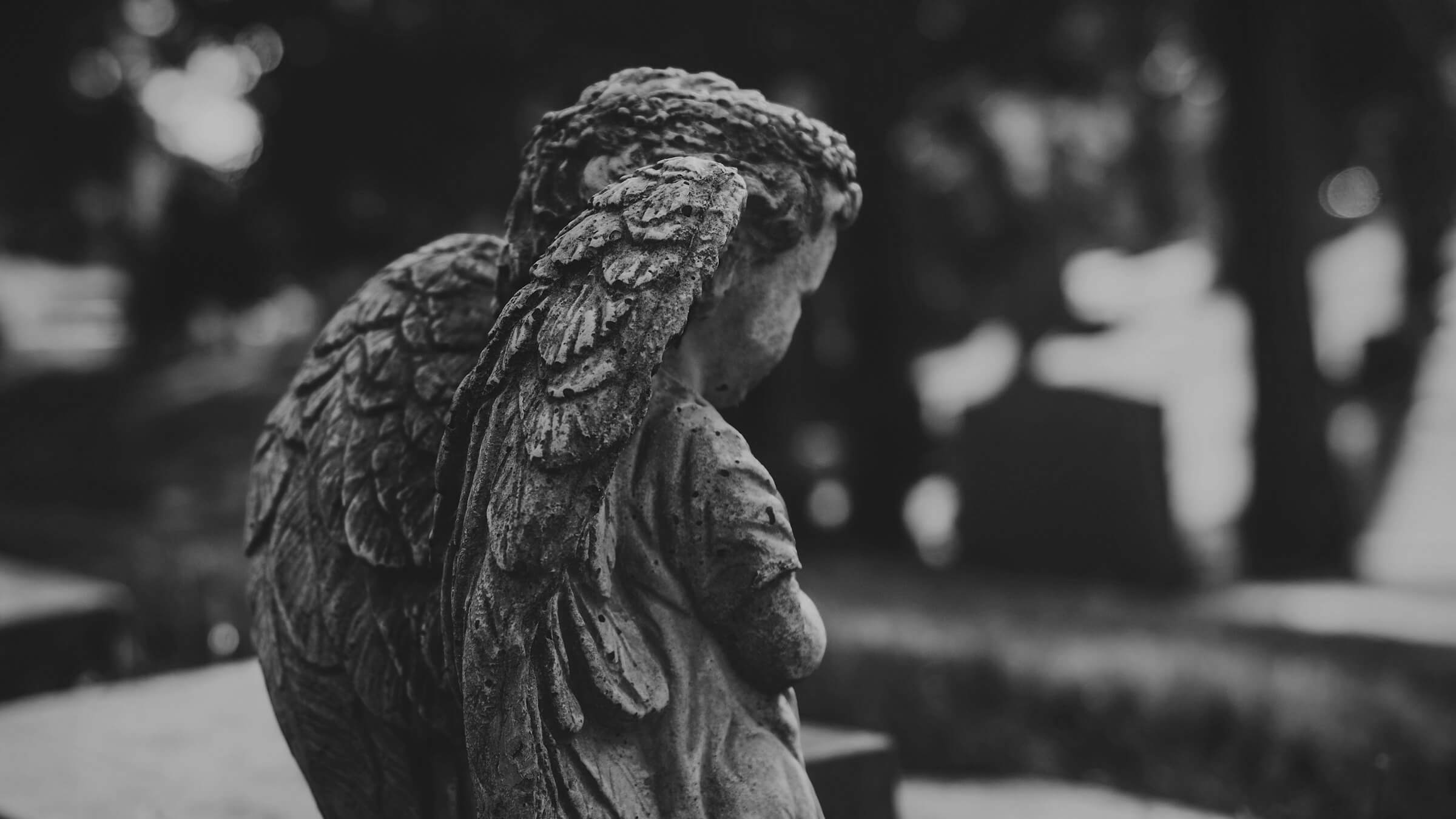The death of a child is always a profound tragedy for their closest relatives. Polish law provides for the possibility of obtaining appropriate compensation for this loss in the form of damages and redress for the harm suffered.
Undoubtedly, no amount of money can fully compensate for such a loss, but a sum awarded in an appropriate amount can help mitigate its effects. It is obvious that such benefits apply to a child already born. However, do they also apply if a child who has not yet been born passes away? You will find the answer to this question in this article.
From this post, you will learn:
- Does the life of an unborn child enjoy legal protection?
- Can an unborn child be considered deceased?
- Is compensation and redress available for the death of an unborn child?
- Are the parents of an unborn child considered its closest family members?
- FAQ
Does the life of an unborn child enjoy legal protection?
To begin with, it should be noted that a child conceived but unborn is referred to as a nasciturus. This term, derived from Roman law, means “one who is to be born.”
Importantly, Polish legislation does not provide a clear definition of when human existence begins. However, this lack of clarity has no practical significance, as human life is subject to unconditional protection under the law in Poland.
Two key normative acts are fundamental in this regard:
- The Constitution, which in Article 38 states that the Republic of Poland ensures legal protection of life for every person.
- The Act of January 7, 1993, on Family Planning, Protection of the Human Fetus, and Conditions for Termination of Pregnancy (consolidated text: Journal of Laws of 2022, item 1575), which states in Article 1(1) that the right to life is protected, including in the prenatal phase, within the boundaries specified therein.
This means that such protection undoubtedly extends to human life during the prenatal period, i.e., before birth. The Constitutional Tribunal has also addressed this issue.
In its ruling of May 28, 1997 (K 26/96, OTK 1997/2/19), the Tribunal stated that the constitutional value of the legally protected good of human life, including life in the prenatal phase, cannot be differentiated. There are no sufficiently precise and justified criteria to allow for differentiation depending on the developmental stage of human life. From the moment of inception, human life becomes a constitutionally protected value, including the prenatal phase.
In its judgment of October 22, 2020 (OTK ZU A/2021, item 4), the Tribunal emphasized that “the innate and inalienable dignity inherent in every human being and its equality prohibits differentiating the value of a given human being, and thus their life. It is inadmissible to assert that, due to certain characteristics, one individual is less valuable than another as a human being. This statement applies not only to the postnatal phase but also to the prenatal phase of human life. Regardless of the fact of birth, the characteristic of being human does not change.”
The Tribunal further elaborated: “This conclusion is based on the observation that human development and personality are gradual processes that extend before and after birth. This means that the inherent and inalienable dignity, and consequently legal protection of life, cannot be arbitrarily limited to a fully developed person or from a specific moment of a child’s prenatal development. This protection applies to every living human being, and the period of their life and level of development are irrelevant in this regard.”
Can an unborn child be considered deceased?
The concept of a deceased person is not as simple as it might initially seem, as it raises questions not only about the characteristics required for a person to be considered deceased but also about the conditions under which this status may apply to a child who has not yet been born.
In the article “Compensation for the Death of a Loved One“, it was noted that a deceased person is understood to be any human being who is no longer alive. The Supreme Court has stated that a deceased person is one who lived, even for a moment, thereby acquiring legal capacity or who was capable of independent life.
Legal capacity for life outside the mother’s body is defined as a level of development that gives the child a chance of survival once separated from the mother’s body.
A child born stillborn does not acquire legal capacity; however, according to the provisions of the Act of September 29, 1986, on Civil Status Records, such a child is treated similarly to a deceased individual. These provisions allow for the recognition of their death and the recording of this fact in the required civil status records (birth certificate). This record also serves as a death certificate, forming the basis for arranging the child’s burial. This means that an unborn child capable of life outside the mother’s body, who died due to injuries sustained in an accident, can be considered “deceased” under the provisions of the Civil Code. Consequently, an unborn child not capable of life outside the mother’s body cannot obtain this status.
Is compensation and redress available for the death of an unborn child?
If you are wondering whether compensation and redress are due for the death of an unborn child, the answer is unequivocally yes. These benefits are available under the same principles as for individuals born alive. They are specified in the relevant provisions of the Civil Code.
Under these provisions, the court may award appropriate compensation to the closest family members of the deceased if their death resulted in significant deterioration of their living situation (Article 446 §3) or an appropriate amount as monetary compensation for the harm suffered (Article 446 §4).
This issue is extensively discussed in the articles “The functions and amount of compensation and redress for the death of a close person“ and “Compensation and Redress for the Death of a Loved One“ If you wish to delve deeper into these topics, I encourage you to read them.
The Child’s Ability to Live Independently Outside the Mother’s Body
It is important to note that a crucial factor in claiming redress for the death of a child before birth under Article 446 §4 is the child’s ability to live independently outside the mother’s body at the time of death.
The landmark Supreme Court judgment of November 26, 2014 (III CSK 307/13, OSNC 2015/12, item 147, LEX no. 1544410) is of fundamental importance here.
This judgment stated that the legally protected good, the violation of which gives rise to a claim for redress for the closest family members, is the violation of family bonds causing pain, suffering, a sense of emptiness, and harm.
From the perspective of the protected good, it does not matter whether the death of an unborn child capable of life outside the mother’s body occurred in the womb or whether the child was stillborn via cesarean section. In both cases, the emotional bond between close relatives suffers a comparable degree of harm. It is a matter of chance whether, in specific circumstances, a cesarean section resulting in stillbirth could be performed or whether the child’s death occurred in the womb due to the absence of such a possibility.
There is no compelling argument against awarding redress solely because the death of a child capable of independent life occurred before birth. Therefore, it must be concluded that even in the event of such a child’s death, if they had already achieved the ability to live independently, the court may award appropriate monetary compensation to the closest family members for the harm suffered.


Everyone is equal before the law. Effective lawyer makes the difference
Children Who Died Before Achieving Independent Life Capability
This raises the question: if an unborn child who was not capable of independent life dies, are their close relatives entitled to legal protection?
Under current regulations, the answer must be affirmative. In such cases, parents can invoke relevant provisions concerning the protection of personal rights contained in Article 448 in conjunction with Article 24 of the Civil Code. This was unequivocally stated by the Supreme Court, which indicated in the discussed judgment that there is a legal right understood as the right to “undisturbed family life.” This constitutes a personal right of the entitled parties and is therefore subject to protection.
This is because a family consists of spouses regardless of whether they have offspring. The conception of a desired and expected child strengthens family bonds between spouses and creates emotional ties with the child that intensify as the child matures. It is unfounded to assert that such bonds can only form with a live-born child. Spouses anticipate the child’s birth for months, planning and organizing family life accordingly. An unlawful act causing the child’s death disrupts family life drastically, violates the parents’ right to nurture bonds with the child during pregnancy, and eliminates the possibility of continuing family life with the child in the future. Most often, parents have a strong bond with their unborn child, and the suffering caused by their death is intense and long-lasting.
According to established jurisprudence, it is possible to award redress for the death of an unborn child even in cases where both the child and the mother die in an accident and no delivery—even stillbirth—takes place.
Are the parents of an unborn child considered its closest family members?
It is generally accepted that they are, even if the child was never born! This is because determining who constitutes the closest family member depends on the actual relationship between specific individuals, not just the formal degree of kinship or affinity, which can only exist between individuals already born.
Therefore, in such cases, the court should determine whether a sufficiently strong and positive emotional bond existed between the claimant and the deceased unborn child. This bond must allow for the conclusion that the child was regarded as a family member, i.e., a closest relative, and what its nature was. There is no doubt that from the moment of conception, an unborn offspring can be regarded by parents as their child even before birth. This leads to the formation of certain emotional ties and feelings toward such a descendant.
This is influenced not only by the child’s period of existence in the mother’s body but also by the subjective perception of both the mother and the father regarding the child’s anticipation and the way they prepared for the upcoming birth. What matters is each parent’s attitude toward the unborn child, whether it was expected and wanted, and the hopes they associated with it. Establishing these circumstances allows for assessing the depth of the bond between them and their conceived offspring, ultimately determining whether they can be recognized as the child’s closest family members.
We understand the profound and painful emotions accompanying grieving parents and first and foremost express our deepest sympathies to anyone affected by such a loss. We know that no amount of money can balance this loss. Nevertheless, Polish law provides for the possibility of compensation and redress for this significant harm. We are not only lawyers but empathetic individuals. We will help you not only obtain the appropriate amounts but also do so in the most efficient and least painful way possible. Contact us and share your story.

